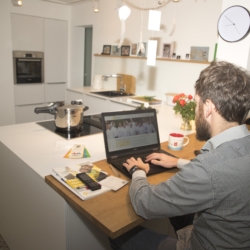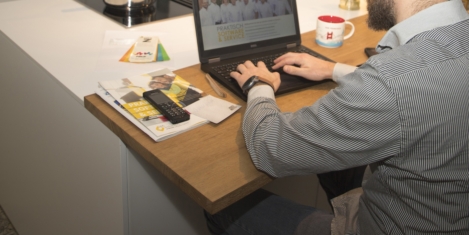To provide the best experiences, we use technologies like cookies to store and/or access device information. Consenting to these technologies will allow us to process data such as browsing behaviour or unique IDs on this site. Not consenting or withdrawing consent, may adversely affect certain features and functions.
The technical storage or access is strictly necessary for the legitimate purpose of enabling the use of a specific service explicitly requested by the subscriber or user, or for the sole purpose of carrying out the transmission of a communication over an electronic communications network.
The technical storage or access is necessary for the legitimate purpose of storing preferences that are not requested by the subscriber or user.
The technical storage or access that is used exclusively for statistical purposes.
The technical storage or access that is used exclusively for anonymous statistical purposes. Without a subpoena, voluntary compliance on the part of your Internet Service Provider, or additional records from a third party, information stored or retrieved for this purpose alone cannot usually be used to identify you.
The technical storage or access is required to create user profiles to send advertising, or to track the user on a website or across several websites for similar marketing purposes.
 To mark the start of National Work Life Week, work-life balance charity Working Families has launched the results of a survey of employers who have invested in creating family-friendly workplaces with flexible working. Reflecting the views of 26 Working Families employer members, the survey gives a snapshot of employer best practice during the pandemic, showing how organisations have risen to the challenge of supporting their staff. (more…)
To mark the start of National Work Life Week, work-life balance charity Working Families has launched the results of a survey of employers who have invested in creating family-friendly workplaces with flexible working. Reflecting the views of 26 Working Families employer members, the survey gives a snapshot of employer best practice during the pandemic, showing how organisations have risen to the challenge of supporting their staff. (more…)








 A new study by independent job board,
A new study by independent job board, 
 There are some good things about working in an office. Constant supplies of tea and coffee (if you’re lucky), gossip with your co-workers, and paper clips in every colour. But one of the best things has to be that when something goes wrong with your computer, the in-house IT helpdesk will have it sorted out quicker than you can say ‘so which buttons do you want me to press?!’ However, home workers don’t have this luxury.
There are some good things about working in an office. Constant supplies of tea and coffee (if you’re lucky), gossip with your co-workers, and paper clips in every colour. But one of the best things has to be that when something goes wrong with your computer, the in-house IT helpdesk will have it sorted out quicker than you can say ‘so which buttons do you want me to press?!’ However, home workers don’t have this luxury. 
 2020 has been the most stressful year in history for the global workforce and people want robots to help, according to a new study by
2020 has been the most stressful year in history for the global workforce and people want robots to help, according to a new study by 


 The roles of scientists change as research teams become more interdisciplinary and larger, claims new research from
The roles of scientists change as research teams become more interdisciplinary and larger, claims new research from 
 New research from recruitment agency
New research from recruitment agency 
 New research from financial advice and investment network
New research from financial advice and investment network 
 New independent polling commissioned by the
New independent polling commissioned by the 




 Businesses in the UK are disproportionately made up of logical and rational thinkers, over intuitive and expressive ones, claims a new study. The study from
Businesses in the UK are disproportionately made up of logical and rational thinkers, over intuitive and expressive ones, claims a new study. The study from 







